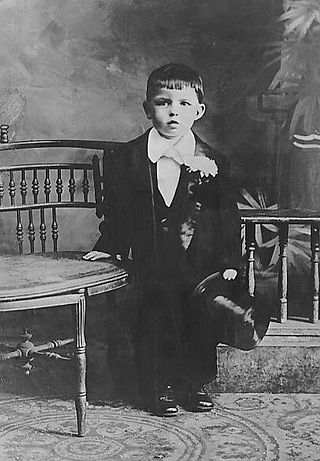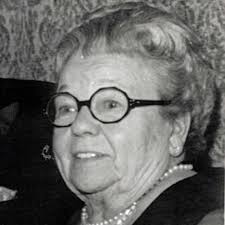
Francis Albert Sinatra was an American singer and actor. Nicknamed the "Chairman of the Board" and later called "Ol' Blue Eyes," he is regarded as one of the most popular entertainers of the mid-20th century. Sinatra is among the world's best-selling music artists, with an estimated 150 million record sales globally.

The Pied Pipers were an American popular singing group originally formed in the late 1930s. They had several chart hits throughout the 1940s, both under their own name and in association with Tommy Dorsey, with Johnny Mercer and with Frank Sinatra.
"It Was a Very Good Year" is a song composed by Ervin Drake in 1961 and originally recorded by Bob Shane with the Kingston Trio. It was made famous by Frank Sinatra's version in D minor, which won the Grammy Award for Best Male Vocal Performance in 1966 and became Sinatra's first number one Adult Contemporary single, also peaking at No. 28 on the Hot 100.

Marvel Marilyn Maxwell was an American actress and entertainer. In a career that spanned the 1940s and 1950s, she appeared in several films and radio programs, and entertained the troops during World War II and the Korean War on USO tours with Bob Hope.

The Major Bowes Amateur Hour was an American radio talent show broadcast in the 1930s and 1940s, created and hosted by Edward Bowes (1874–1946). Selected performers from the program participated in touring vaudeville performances, under the "Major Bowes" name. The program later transitioned to television under host Ted Mack.

Edward Bowes, professionally known as Major Edward Bowes, was an American radio personality of the 1930s and 1940s whose Major Bowes Amateur Hour was the best-known amateur talent show on radio during its 18-year run (1935–1952) on NBC Radio and CBS Radio.
Shine is a popular song with lyrics by Cecil Mack and Tin Pan Alley songwriter Lew Brown and music by Ford Dabney. It was published in 1910 by the Gotham-Attucks Music Publishing Company and used by Aida Overton Walker in His Honor the Barber, an African-American road show. According to Perry Bradford, himself a songster and publisher, the song was written about an actual man named Shine who was with George Walker when they were badly beaten during the New York City race riot of 1900.

Frank Sinatra (1915–1998) was an American singer, actor, and producer who was one of the most popular and influential musical artists of the 20th century. Over the course of his acting career he created a body of work that one biographer described as being "as varied, impressive and rewarding as that of any other Hollywood star".
"There's a Small Hotel" is a 1936 song composed by Richard Rodgers, with lyrics by Lorenz Hart. Originally written for but dropped from the musical Billy Rose's Jumbo (1935), it was used in On Your Toes (1936), where it was introduced by Ray Bolger and Doris Carson, and repeated by Jack Whiting and Vera Zorina in the London West End production that opened on 5 February 1937, at the Palace Theatre.
"Sweet Lorraine" is a popular song with music by Cliff Burwell and words by Mitchell Parish that was published in 1928 and has become a jazz standard. It is written in F major and has an AABA structure.

Frank Sinatra had many close relationships throughout his life. He was married four times and had at least six other notable relationships in between. He had three verified children, as well as more than one of questionable paternity.

Cal Neva Resort & Casino, previously known as the Calneva Resort and Cal-Neva Lodge, is a resort and casino straddling the border between Nevada and California on the shores of Lake Tahoe. The original building was constructed in 1926 and became famous when the national media picked up a story about actress Clara Bow canceling checks she owed to the Cal-Neva worth $13,000 in 1930. After burning down in a fire in 1937, the structure was rebuilt in only 30 days. In 1960, entertainer Frank Sinatra purchased the resort with several others, including singer Dean Martin and Chicago mobster Sam Giancana.

Anthony Martin Sinatra was an Italian-American Hoboken city fireman, professional boxer, and bar owner. He was the father of entertainer Frank Sinatra.

Tom Santopietro is an American author and Broadway theater manager. He worked for 25 years in the New York theater scene, managing over 30 Broadway shows.

This is a list of books about Frank Sinatra.
Throughout his life, Frank Sinatra, the musician and actor, was involved in many different political activities in the United States. He also held positive views toward African Americans at a time when much of the United States still had segregation.

Francis Albert Sinatra was born December 12, 1915, in Hoboken, New Jersey, and lived with his parents, who had emigrated from the Kingdom of Italy.

Dolly Sinatra was an Italian-American homemaker, known as the mother of American singer Frank Sinatra. She was born in Lumarzo, in northern Italy; she immigrated to the United States as an infant.

Henry William "Hank" Sanicola was an American music manager, publisher, businessman and pianist, best known for his work and association with Frank Sinatra from the late 1930s to the early 1960s.

Frank Sinatra was a strong supporter and activist for Jewish causes in the United States and Israel. According to Santopietro, Sinatra was a "lifelong sympathizer with Jewish causes". Sinatra participated in Hollywood protests and productions supporting Jews during the Holocaust and the formation of the State of Israel. He actively fund-raised for Israel Bonds, the Hebrew University of Jerusalem, and the Simon Wiesenthal Center, and helped establish two intercultural centers in Israel which bear his name. Due to his support of Israel, his recordings and films were banned by the Arab League and by Lebanon.















